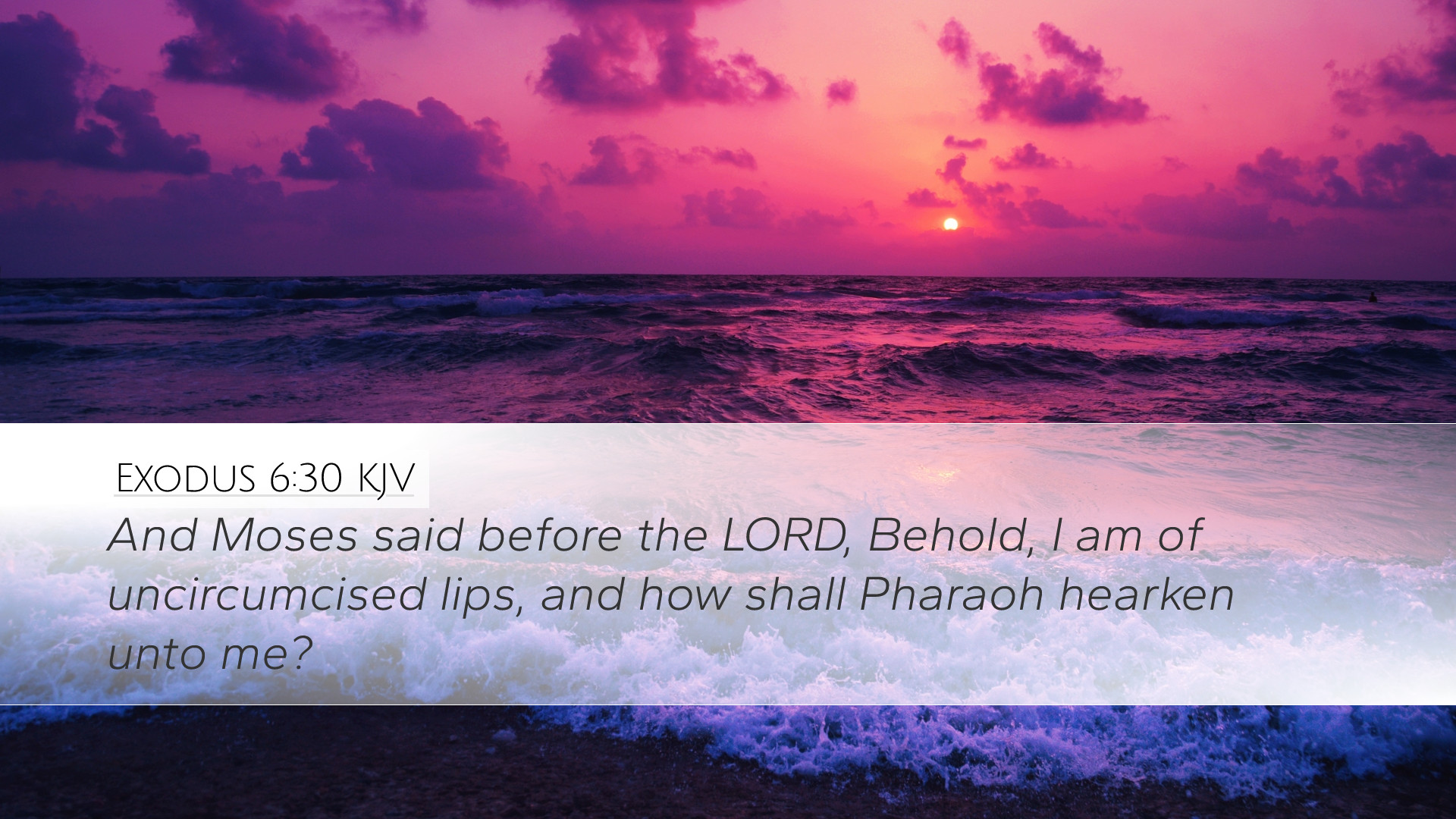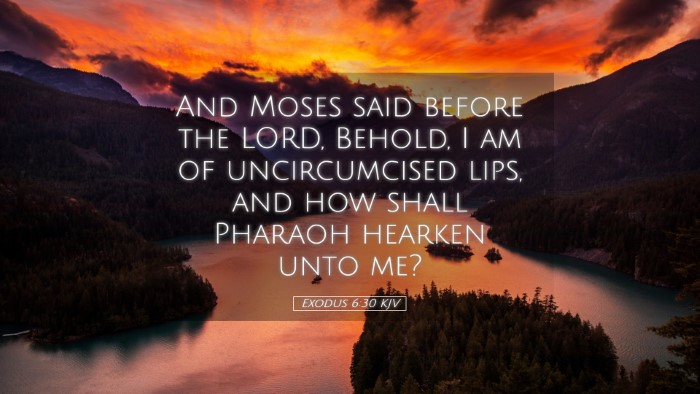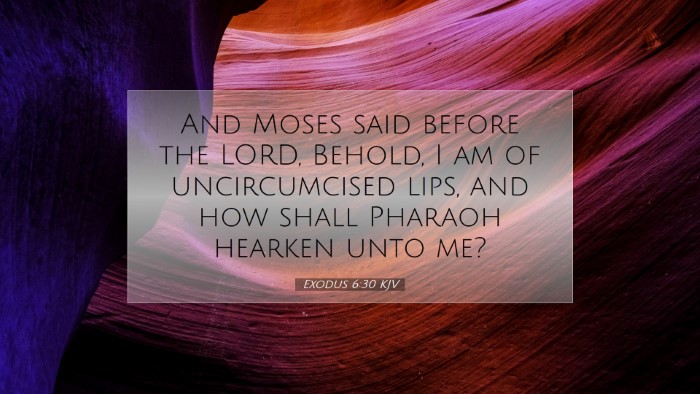Commentary on Exodus 6:30
Verse Reference: Exodus 6:30
“And Moses said before the Lord, Behold, I am of uncircumcised lips, and how shall Pharaoh hearken unto me?”
Introduction
This verse appears at a pivotal moment in the narrative of Exodus, highlighting Moses' sense of inadequacy and God's steadfast call upon him. It encapsulates the profound themes of divine election, human weakness, and trust in God's promise despite personal limitations. The reflections derived from esteemed public domain commentaries provide rich context and deep theological insights.
Moses’ Hesitation
(Matthew Henry) stresses that Moses, despite being chosen by God to lead His people, expresses his insecurity concerning his speaking ability. His description of himself as having “uncircumcised lips” symbolizes his feeling of being unclean or unworthy. This self-assessment reflects a broader human tendency to underestimate oneself, especially when confronted with significant responsibilities.
- Human Insecurity: Moses’ statement reveals a common struggle among leaders who are called to a task that seems beyond them.
- Divine Assurance: The text underscores that God's calling often comes with challenges that amplify our perceived inadequacies.
Moses and the Divine Commission
(Albert Barnes) elaborates on the calling of Moses, highlighting that his reluctance stemmed not from a lack of faith in God but from his awareness of his personal limitations. The phrase “uncircumcised lips” metaphorically suggests a barrier between him and effective communication, which is essential for the task set before him. Yet, it also serves to illustrate God's ability to use flawed instruments for His purposes.
- God’s Empowerment: Barnes points out that God equips whom He calls, often transforming our weaknesses into strengths for His glory.
- Purpose Beyond Ability: The burden of leadership may reveal inadequacies, but the ultimate goal is God’s sovereign plan, not personal capability.
Theological Implications
(Adam Clarke) offers insights into the theological dimensions of Moses’ objection. He posits that Moses’ hesitance serves to remind believers of their falling short before the holiness of God. Clarke indicates that acknowledging one's weaknesses before God is a form of humility, which becomes a prerequisite for divine enablement. This also speaks to a stark reality in ministry: that God's chosen vessels are not always the most eloquent or equipped by worldly standards.
- Revealing Human Nature: Moses’ self-doubt resonates with many in ministry, reminding them of their human frailty in the face of God’s grandeur.
- Being Set Apart: The term “uncircumcised lips” may also signify the need for spiritual preparation before engaging in God’s work.
Encouragement for Leaders
The combined insights from these commentaries provide significant encouragement for pastors, students, and theologians. Leaders often face moments of self-doubt and inadequacies; yet, God calls and qualifies those He chooses. This verse essentially serves as a reminder that God's effectiveness is not contingent on human skill, but on His faithful presence and sovereignty in our lives.
- Trust in God’s Call: Leaders are encouraged to lean into their calling, recognizing that their human frailties can become platforms for God’s glory.
- Assurance of God’s Presence: God's assurance is sufficient; He empowers and equips those who submit their limitations to Him.
Conclusion
In Exodus 6:30, Moses’ plea illustrates the raw honesty with which we can approach our Lord regarding our perceived inadequacies. The verse calls believers to surrender their limitations, trusting that God, who calls us, is also the one who equips us. Through the reflections of Matthew Henry, Albert Barnes, and Adam Clarke, we are reminded that while we may feel we have “uncircumcised lips,” God is capable of speaking through us, even in our weakness, for the fulfillment of His divine purposes.


